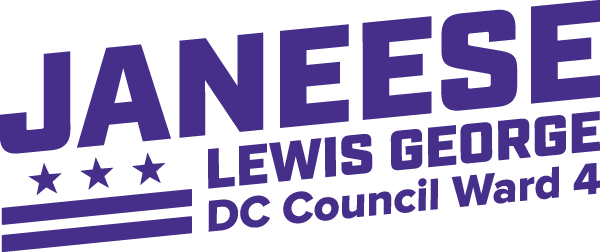Through an amendment dedicating excess revenue to programs that benefit working families, DC residents will receive a $40 million increase in SNAP benefits and $20 million in relief funds for undocumented immigrants, cash economy workers, and returning citizens who are excluded by local and federal safety net programs.
DC residents will receive a $40 million increase in SNAP food assistance starting January 1, 2024 because of a budget amendment introduced by Ward 4 Councilmember Janeese Lewis George in the FY24 DC budget. The amendment dedicated potential future excess revenue to expanding SNAP benefits and providing relief funds to excluded workers in the District. On September 29, the Chief Financial Officer released the September updated revenue estimates, which confirmed that the District has the excess revenue to fund both programs.
“Thousands of families across the District are facing food insecurity amidst skyrocketing prices and Congress reducing food assistance earlier this year. Expanding SNAP benefits is a lifeline for working families and a game changer in our fight against hunger.”
Councilmember Janeese Lewis George
The Give SNAP a Raise Act that was funded by Councilmember Lewis George’s budget amendment was introduced by Councilmember Christina Henderson and passed unanimously by the DC Council. The legislation provides a 10% local enhancement to SNAP benefits for the approximately 130,000 DC residents who rely on SNAP. The average SNAP recipient will receive an additional $47 in food assistance every month, and many recipients will receive much more based on their family size and income.
Relief funds for excluded workers were originally funded by the Council for Fiscal Year 2023, but the Mayor diverted the funds shortly before they could be distributed to the excluded workers that were counting on the assistance. The program provides cash assistance to thousands of undocumented immigrants, returning citizens, and workers in the informal economy (such as street vendors and domestic workers). These workers were disproportionately hurt by the impact of the pandemic but are not protected by local and federal safety net programs like unemployment insurance and stimulus payments. With $20 million restored, excluded workers will now receive the relief they were promised.

